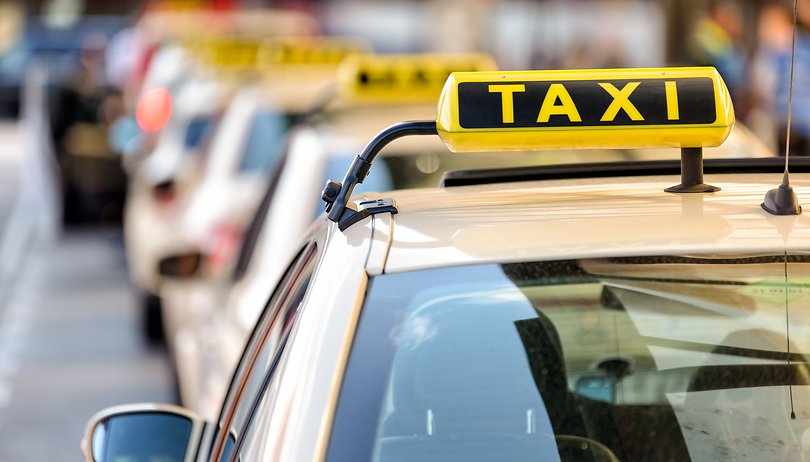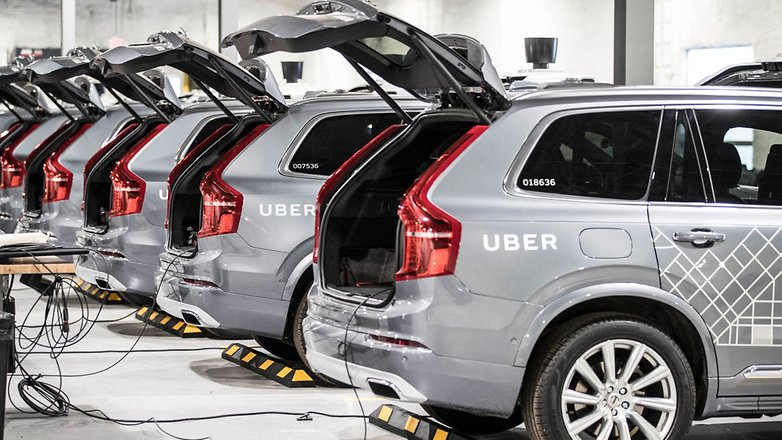The ride-hailing war: Uber's fight with taxis in Europe


The relationship between ride-hauling services and traditional taxi drivers has never been friendly. After years of difficult coexistence, it seems that the situation has come to a head. Where do we go from here? Is peace possible?
After the recent strikes in Spain, and with the MWC just around the corner, Barcelona could not afford a war on its streets. A new law published by the Generalitat de Catalunya seems to have solved this situation, at least temporarily. The new regulation establishes that ride-hauling apps like Uber must be booked at least 15 minutes in advance, a period that can be extended up to one hour as dictated by local administrations. Say goodbye to opening Uber's app on the street and hoping to find a ride right away.

Under no circumstances may Ubers drive around empty: at the end of a service, they must immediately return to a garage or park on the street. Drivers cannot circulate in search of customers. In addition, geolocation can only be activated once a ride service has been booked.
It didn't take long for the ride-hailing giant to make up its mind. Once the Generalitat had given in to taxi blackmail, the VTCs (as they are known in Spanish - Vehiculo de Turismo con Conductor - 'tourism vehicles with a chauffeur') will have to leave the city of Barcelona. A spokesperson for Cabify, an Uber competitor in Spain, Portugal and Latin America, said that there is no competitive framework for business in Barcelona at the moment. Both Cabify and Uber have already announced that they will cease operating in Catalan capital.
Despite all the controversy, these measures are nothing more than a temporary Band-Aid, pending the arrival of the final law regulating both the taxi sector and ride-hailing services.
Ante las restricciones a las VTC aprobadas por el Govern de Cataluña, nos vemos obligados a suspender el servicio de UberX en Barcelona a partir de mañana. Muchas gracias a los miles de usuarios y conductores que habéis confiado en nosotros https://t.co/efbiehknxE pic.twitter.com/Ja0WYOsLzk
— Uber España (@Uber_ES) 31 de enero de 2019
Tweet Translation: Given the restrictions on VTCs approved by the Government of Catalonia, we are forced to suspend the service of UberX in Barcelona from tomorrow. Many thanks to the thousands of users and drivers who have trusted us.
The situation in the main European cities
So, for now, taxi drivers have won the battle against Uber and Cabify in the Catalan capital. But what is happening in the other European capitals? Is the battle just as complicated? Below, we review Uber's situation in other countries.
London - The United Kingdom
In the British capital we find a very liberalized market, where traditional taxis (black cabs) coexist with other options. First came the minicabs - vehicles that offer trips to airports or major stations for a fixed price and that can be booked by phone.
Uber has been operating in London since 2012, despite the fact that the City Council refused its license two years ago due to a problem with the drivers' labor legislation. Uber appealed and became operational again.
How did the taxi sector react? With protests and demonstrations, demanding that Uber drivers have the same labor and legal obligations as traditional taxi drivers. Not only that, but it tried to adapt to the times with modern apps on the same level as Uber, so ordering a taxi is now easier.
The future still is not clear, as there are legal issues that are yet to be resolved. In spite of that, and since the market is very liberalized, Uber will probably obtain a definitive license to operate freely in the city.
 Uber has a good fleet in London. / ©
Spectral-Design / Shutterstock
Uber has a good fleet in London. / ©
Spectral-Design / Shutterstock
Berlin - Germany
In Germany, Uber is only operating in Berlin, Munich, Düsseldorf and, for the last few weeks, Frankfurt. It launched in the German capital in 2013 with Uber Black (professional drivers for luxury cars), but it was banned, along with Uber POP (unlicensed taxis) in 2014. Since 2016, it is operative as Uber X.
The conditions are quite clear: people cannot take trips in private cars, as drivers have to be professionals with a specific license as taxi drivers. This has led Uber to subcontract car rental companies with professional drivers in order to meet the standard. This limitation means that Uber is only present in cities where the car rental fleet is large, and has been a barrier to its expansion throughout the German territory.

As with the recent legislation applied in Barcelona, Uber must operate under the obligation to return the vehicles to garages after the shift. This is, in theory, because it is difficult to prove and taxi drivers report that it is not being complied with. There is one exception to this rule: if you are back in the garage and you receive another order, you can accept it.
The relationship with taxi drivers has been ambiguous since. Although many complain about the economic losses caused by Uber's entry, there is the possibility of using the app to provide clients to taxi drivers in exchange for a 7% commission. In this way, taxis that use this service pay 7% to Uber. The service is called UberTaxi.
Paris - France
In France, Uber drivers struggle in court to be recognized as wage earners. They have complained about long working hours, that there is no minimum fare, and about the lack of tax breaks for taxi drivers... The French Ministry of Transport is trying to find possible solutions to the issue.
For their part, taxi drivers have made forceful protests, blocking the main roads of the city, as well as the Charles de Gaulle airport. This is a particularly contentious place, as complaints about the parking of Uber vehicles in forbidden areas are compounded by the problem of pirate taxis.

In December 2018, the National Commission for Information Technology and Freedoms fined Uber 400,000 euros for exposing the data of 1.4 million French users. A problem that affected users all over the world, but France decided to sanction the company.
Despite having quite clear regulations, the situation is very tense, with episodes of assaults and arrests by the police. France does not set a limited number of ride-hailing service cars, but it does for taxis. Paris has a fleet of 19,000 taxis compared to 14,200 Ubers or rivals: far from the famous 1/30 ratio demanded by taxi drivers (Madrid, for example, has 15,700 taxis compared to 1,500 VTCs).
Brussels - Belgium
In Belgium's capital, the judiciary says that Uber must be illegal if it does not have the same license as a taxi and the classic green light that shows if it is passenger-free. If you do not meet this requirement, each illegal journey can be sanctioned with a fine of up to 10,000 euros, although in reality, these fines are rarely handed out.
Uber claims this measure only affects Uber Pool, which has not been operational since 2015. The case is being studied, and for now Uber X is functioning normally. Bear in mind that in Brussels you cannot raise an arm and haul a taxi, you must go to a dedicated taxi stand. This makes Uber's service very popular.
So, what does the future hold?
We must be reminded that this is not a war of good against evil. Taxi drivers no longer have to know a city's streets by heart, and we are beyond the days when (sometimes) you couldn't trust if they drove the shortest route. Times have changed, and smartphones and applications must make our lives easier. Adapt or die, they say. That's what the taxi industry should do, just as musicians have had to do after the arrival of music streaming or newspapers since the existence of digital versions.
On the other hand, and despite being in favor of services like Uber, I believe that the authorities cannot drop the taxi sector. I do not like to be in the hands of regulators, but I'm even more afraid to be in the hands of big tech companies. What would happen in a future without taxis with regulated prices, in which Uber had no competition? Don't you think it would raise prices at will? That's where the legislation has to fight not to give power to the big multinational corporations. Oh, and another question is how and where they file their taxes...

For now the taxi sector and Uber are being forced to co-exist. And I hope they continue to do so! What about you, do you think it's possible? Do you think the sector should be regulated more effectively? Let us know in the comments.




















Cheap and Best way to book a local taxi in London or airport transfer by comparing prices and advance booking up to 11 months ahead, visit cabhit. Low-cost and reliable as compare to uber.
I am glad to see that taxi companies are finally making their own apps.
Uber shouldn't exist, they are nothing but bad actors the congest, pollute, destroy incomes , taxis totally mistreated by the authorities , they don't have any tech advantage , taxis can do anything Uber does